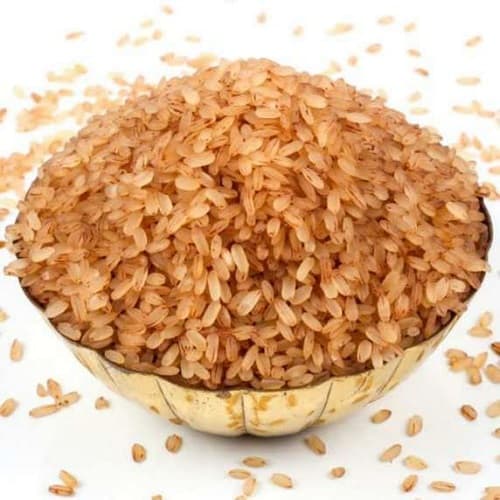Mudavattukal Kizhangu Soup Powder 50g (Pack of 2)
Rs. 160.00 Rs. 189.00
Organic Natural Sarkkara | Jaggery Whole | Gud vellam | Muppattan Seller
Rs. 99.00 Rs. 120.00
Pirandai Idili Rice Podi 100g (Pack of 2)
Rs. 160.00
Veena Product Panam Kizhangu Powder - 250g
Rs. 320.00 Rs. 380.00
Veena Products Malabar Tamarind ( Kudampuli ) - 400gm
Rs. 280.00 Rs. 340.00
Veena Product Sabja Seed - 400g
Rs. 320.00 Rs. 350.00
Araikkal Kudharavalli Dosa Ready Mix -250g ( Pack of 2 )
Rs. 120.00 Rs. 200.00
Thaiman Organic Fresh- Athipalam / Fig - 1kg
Rs. 620.00
Kollu Soup 100g
Rs. 170.00 Rs. 240.00
Veena Products Avaram Poo Tea - 100 g ( Pack of 2 )
Rs. 250.00 Rs. 290.00
Veena Products Weightloss Soup Powder - 100g
Rs. 150.00 Rs. 200.00
Veena products Theathaan kottai ( Clearing Nut Coffee ) - 100g ( Pack of 2 )
Rs. 240.00 Rs. 300.00
Veena Products Honey based Rose Gulkand - 500 g
Rs. 430.00 Rs. 455.00
Veena Product Mudakathan Soup Powder - 100g ( Pack of 2 )
Rs. 285.00 Rs. 300.00
Thaiman Organic Black Dates / Dates - 1kg
Rs. 525.00 Rs. 700.00
Thaiman Organic Kerala Matta Rice - 2kg
Rs. 190.00 Rs. 230.00
Intake Moringa Organic Atta | Moringa Atta Flour -1500gms.
Rs. 180.00 Rs. 380.00
Veena Products Palm Sprouts Mavu - 150 g
Rs. 190.00 Rs. 240.00
Veena Product Herbal Soup Powder - 100g ( Pack of 2 )
Rs. 200.00 Rs. 250.00
Curry leaves Idly Powder 100g(Pack of 2)
Rs. 160.00
Thuthuvalai Rasam Powder 100g (Pack of 2)
Rs. 150.00
33 Herbals SlimFit Juice (Horse Gram Juice) - 500ml
Rs. 254.00 Rs. 340.00
Araikkal Health Mix Powder ( Pack of 3 )
Rs. 225.00
Veena Products Beetroot Malt - 200 g
Rs. 235.00 Rs. 270.00
Naturally Kolli hills Neem Flower Rice Podi 100g (Pack of 2)
Rs. 220.00 Rs. 270.00
Vallari Idli Rice Podi 100g (Pack of 2)
Rs. 150.00
Veena Products Panakalkandu - 250g
Rs. 225.00 Rs. 260.00
Veena Product Sukku Mali Coffee With Palm Candy - 120g ( Pack of 2)
Rs. 320.00 Rs. 370.00
Nattfru Phalsa Fruit Juice|No Added Color or Preservatives – Only 100% Fruit-200g
Rs. 197.00–Rs. 395.00
Veena Products Thuthuvalai Soup Powder - 100g ( Pack of 2 )
Rs. 200.00 Rs. 250.00
Thaiman Organic Nepal Paneer Rose For Diabetes - 100g
Rs. 165.00 Rs. 195.00
Anjeer Fruit Halwa (அத்தி பழம் அல்வா)-200gm
Rs. 298.00 Rs. 490.00
Araikkal Finger Millet Laddu - 12Pcs ( Pack of 3 )
Rs. 79.00 Rs. 340.00
Back To Roots Natural Honey / Thean -300g
Rs. 268.00 Rs. 468.00
Araikkal Health Mix Powder ( Pack of 2 )
Rs. 150.00
Araikkal Mapillai Samba Aval ( Pack of 4 )
Rs. 280.00 Rs. 380.00
Veena Products Sugar Cane Brown Sugar with 21 Herbs - 1kg
Rs. 200.00 Rs. 250.00
Thaiman Organic Amla Honey / Honey / Amla - 4Pieces
Rs. 160.00 Rs. 210.00
Intake Moringa Instant Soup Mix -200gm
Rs. 210.00 Rs. 510.00
Sesame Ball / Ellu Urundai - 500g (Muppatan)
Rs. 246.00–Rs. 492.00
Veena Products Vallarai Soup Powder - 100g ( Pack of 2 )
Rs. 200.00 Rs. 250.00
Thaiman Organic Nattu Sakkarai / Jaggery Powder - 2kg
Rs. 230.00 Rs. 259.90
Thaiman Organic Palm Jaggery Sugar | Panam Kalkandu / Panamkarkandu Medium Quality- 1kg
Rs. 950.00 Rs. 1,099.80
Araikkal Ulutham Kanji Ready Mix - 250g ( Pack of 2 )
Rs. 100.00 Rs. 200.00
Araikkal Spirulina Laddu - 12Pcs ( Pack of 3 )
Rs. 79.00 Rs. 370.00
Araikkal Pearl Millet Laddu, 12pcs ( Pack of 3 )
Rs. 79.00 Rs. 340.00
Araikkal Atta With Small Millets Ready Mix -200gm ( Pack of 2 )
Rs. 170.00 Rs. 190.00

























































